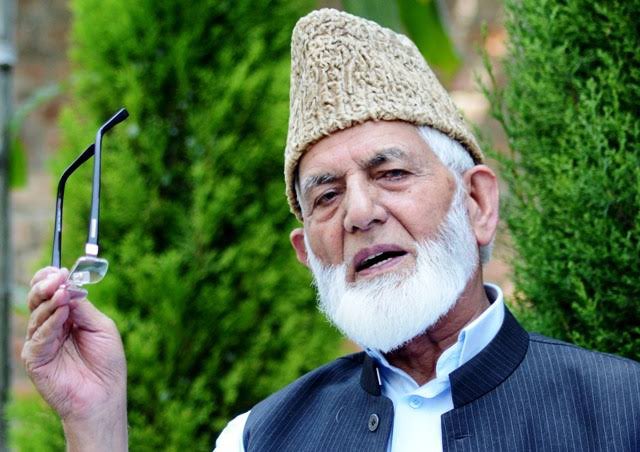
FIDH (International Federation for Human Rights), FORUM-ASIA (Asian Forum for Human Rights and Development), and the OMCT (World Organization Against Torture) on Friday released a statement condemning “the serious human rights violations committed by Indian government authorities in Kashmir” following the death of Kashmiri leader Syed Ali Shah Geelani on 1 September 2021.
The three organizations also condemned the imposition of restrictions that were inconsistent with India’s international human rights obligations. The organizations urged the government of India to end all acts of harassment against the veteran leader Syed Ali Shah Geelani’s family members.
The statement mentions how after the news of Syed Ali Shah Geelani’s death broke in the valley on the night of 1 September, the “police and military forces blocked all roads and other access routes leading to Mr. Geelani’s home in Srinagar.”
The security forces also prevented media workers from reaching Mr. Geelani’s home, it reads.
It says that the family members said police removed Mr. Geelani’s body from his home, which “prevented his family and other relatives from performing his final rites, including funeral prayers and the burial in accordance with Islamic practice.”
The statement says that according to the family members, “in the early hours of 2 September, the police hastily buried Mr. Geelani at a graveyard near his home – an act that was against the leader’s wishes, as he wanted to be buried in the Martyrs Graveyard in Eidgah, Srinagar, nearly nine kilometers from his home.”
The statement also makes a note of how no relatives of Mr. Geelani were allowed to attend his burial, “which took place under a massive presence of security forces.”
Further, it states that on 5 September 2021, “police in Srinagar filed a first information report (FIR) against an unknown number of Mr. Geelani’s family members under the repressive Unlawful Activities Prevention Act (UAPA).”
The Police also accused them of shouting anti-India slogans and draping Mr. Geelani’s body in a Pakistani flag after his death, says the statement.
Following the news of Mr. Geelani’s death, “authorities shut down mobile phone networks and all internet services in the Kashmir valley.”
“While broadband internet services and mobile phone networks were restored in the Kashmir valley in the evening of 3 September, mobile internet services remained suspended in most districts until 6 September, except for Srinagar and Budgam Districts, where curbs were lifted in the evening of 7 September,” it says.
The organizations in their statement noted that these communication blockades made it difficult for the people to access healthcare and other essential services in the region.
And that the “frequent communication blockades that have been imposed in Kashmir since August 2019 have been widely condemned locally and internationally. In August 2019, five United Nations (UN) human rights experts described the communication shutdown as “collective punishment.”
While no curfew was officially declared, authorities also imposed blanket restrictions on freedom of movement and peaceful assembly in the Kashmir valley until 5 September. On the evening of 2 September, security forces fired tear gas to disperse a crowd of about 300 people who had assembled in the Nawabazar area of Srinagar, it reads.
FIDH, FORUM-ASIA, and OMCT together condemned “the violations of the rights to freedom of expression, freedom of peaceful assembly, freedom of movement, and freedom of religion or belief.”
The three organizations also urged the Indian government “to ensure the people of Kashmir can exercise their legitimate rights in accordance with the human rights treaties to which India is a state party.”
